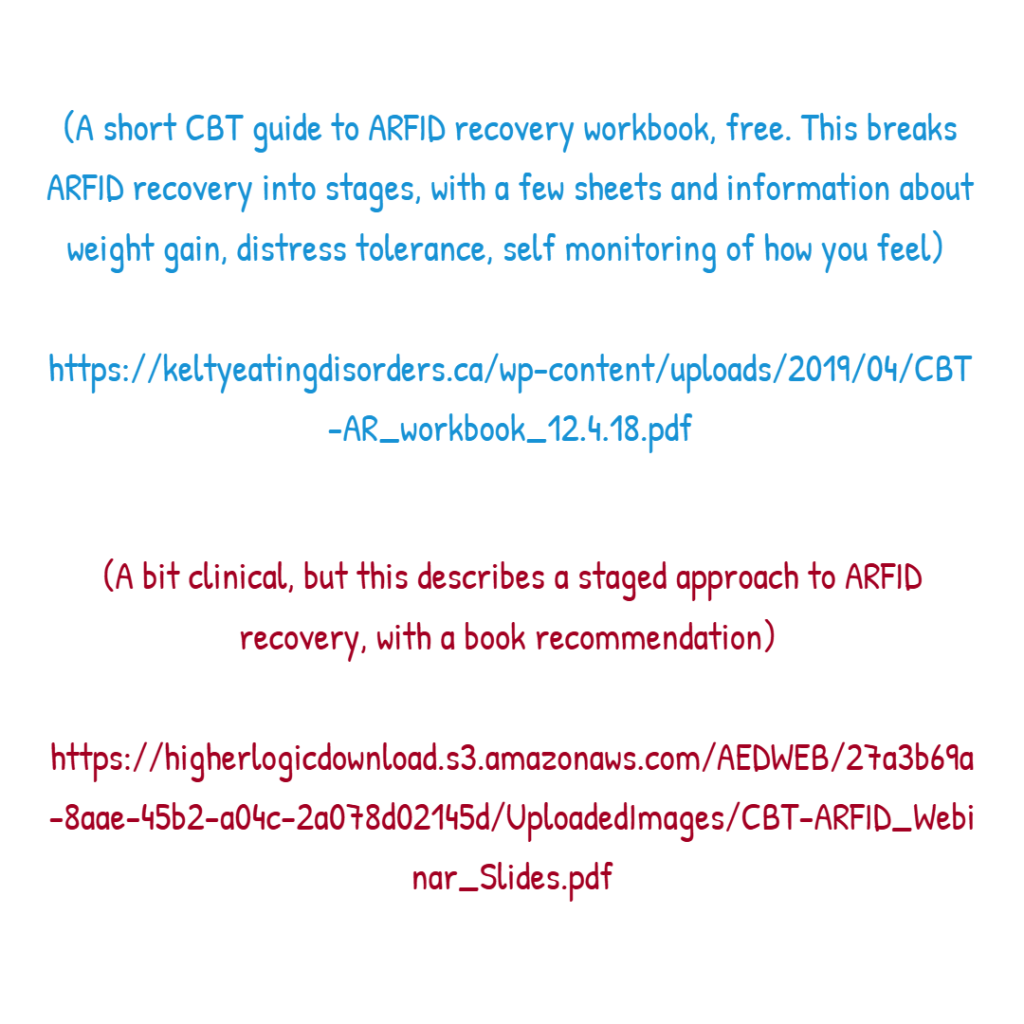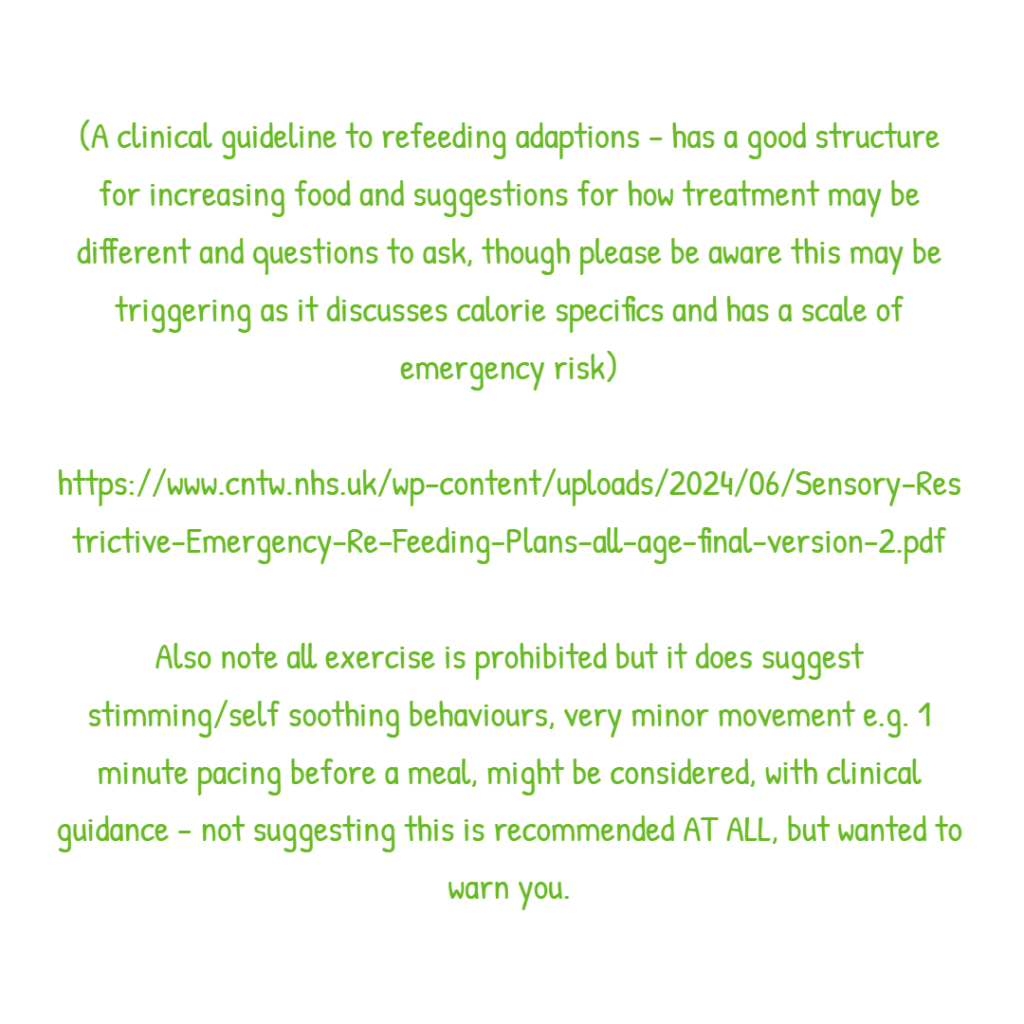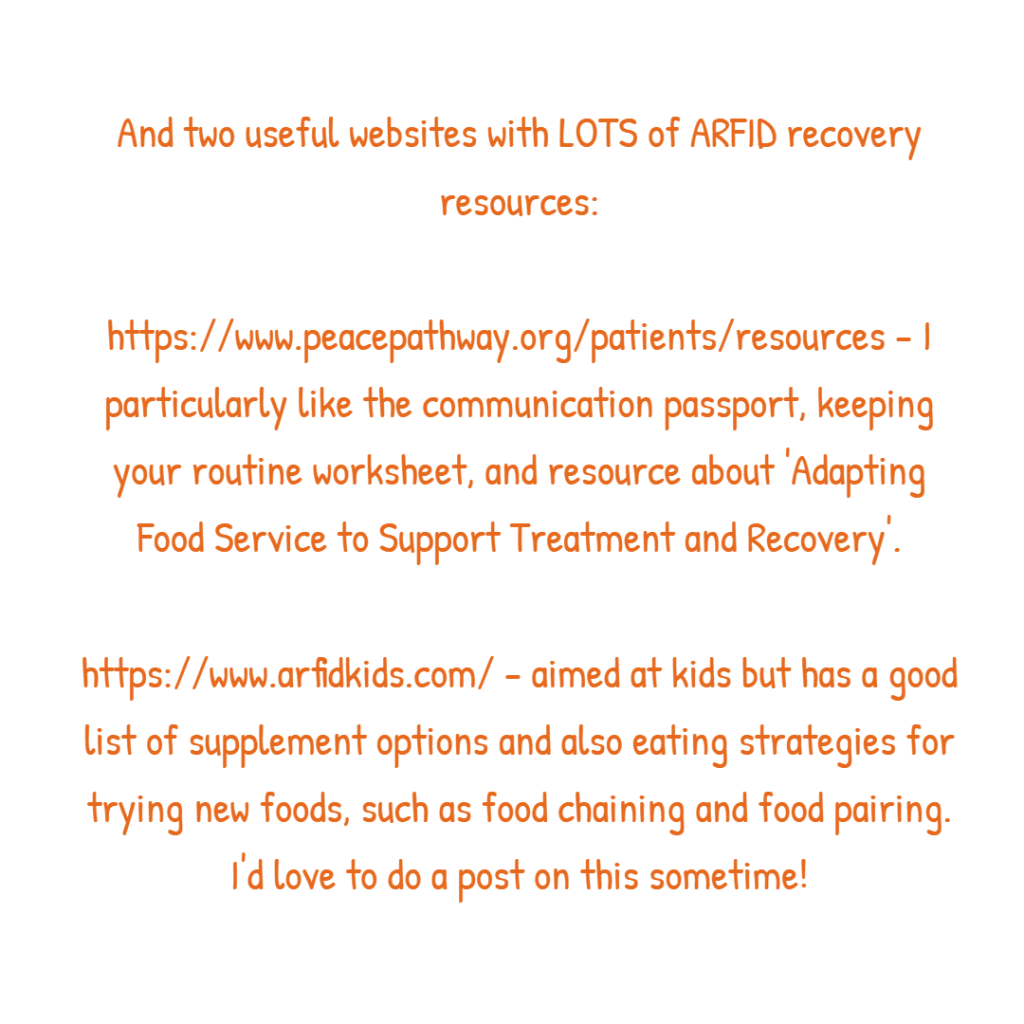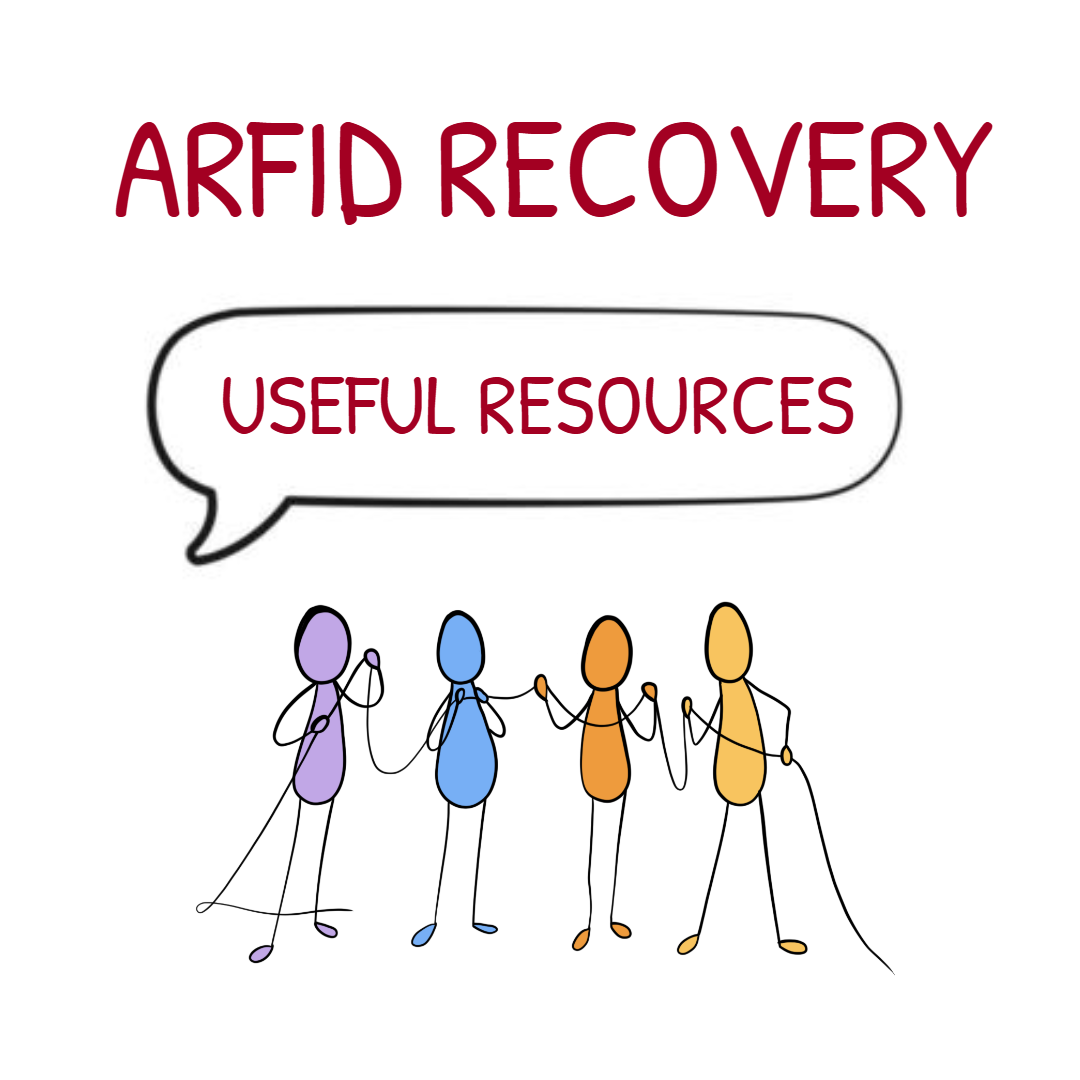FINALLY, I finish off my series of navigating ARFID recovery posts, with some useful resources I have found. Please remember I am not an expert, and this is all my own personal experience!
(A short CBT guide to ARFID recovery workbook, free. This breaks ARFID recovery into stages, with a few sheets and information about weight gain, distress tolerance, self monitoring of how you feel) –
https://keltyeatingdisorders.ca/wp-content/uploads/2019/04/CBT-AR_workbook_12.4.18.pdf
(A bit clinical, but this describes a staged approach to ARFID recovery, with a book recommendation) –
https://higherlogicdownload.s3.amazonaws.com/AEDWEB/27a3b69a-8aae-45b2-a04c-2a078d02145d/UploadedImages/CBT-ARFID_Webinar_Slides.pdf
(A clinical guideline to refeeding adaptions – has a good structure for increasing food and suggestions for how treatment may be different and questions to ask, though please be aware this may be triggering as it discusses calorie specifics and has a scale of emergency risk) –
https://www.cntw.nhs.uk/wp-content/uploads/2024/06/Sensory-Restrictive-Emergency-Re-Feeding-Plans-all-age-final-version-2.pdf
Also note all exercise is prohibited but it does suggest stimming/self soothing behaviours, very minor movement e.g. 1 minute pacing before a meal, might be considered, with clinical guidance – not suggesting this is recommended AT ALL, but wanted to warn you.
And two useful websites with LOTS of ARFID recovery resources:
https://www.peacepathway.org/patients/resources – I particularly like the communication passport, keeping your routine worksheet, and resource about ‘Adapting Food Service to Support Treatment and Recovery’.
https://www.arfidkids.com/ – aimed at kids but has a good list of supplement options and also eating strategies for trying new foods, such as food chaining and food pairing. I’d love to do a post on this sometime!
I hope all this helps!
(Right click to open images in new tab).




Leave a Reply